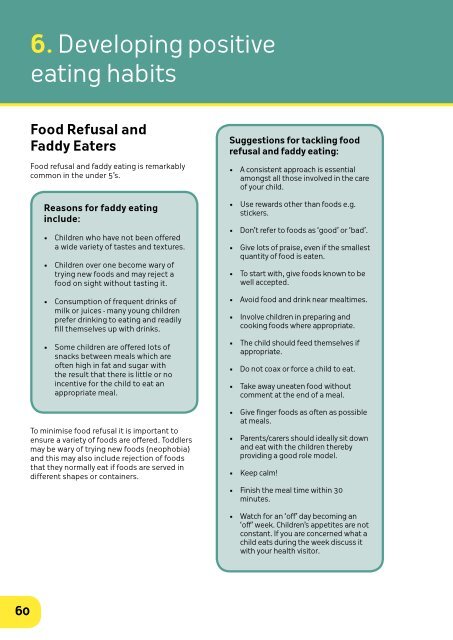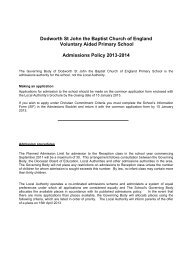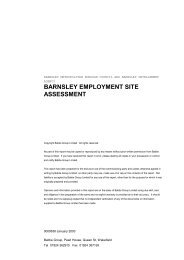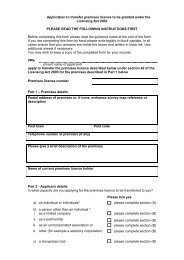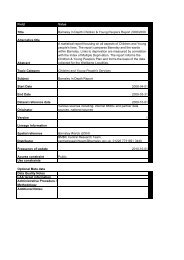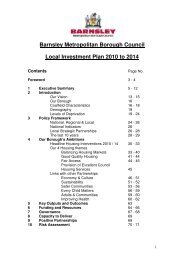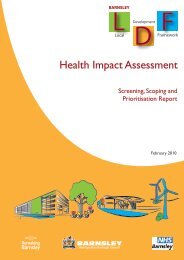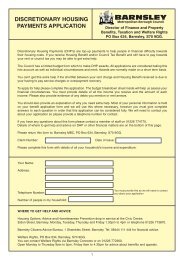Food and Nutrition Guidelines - Barnsley Council Online
Food and Nutrition Guidelines - Barnsley Council Online
Food and Nutrition Guidelines - Barnsley Council Online
Create successful ePaper yourself
Turn your PDF publications into a flip-book with our unique Google optimized e-Paper software.
6. Developing positive<br />
eating habits<br />
<strong>Food</strong> Refusal <strong>and</strong><br />
Faddy Eaters<br />
<strong>Food</strong> refusal <strong>and</strong> faddy eating is remarkably<br />
common in the under 5’s.<br />
Reasons for faddy eating<br />
include:<br />
• Children who have not been offered<br />
a wide variety of tastes <strong>and</strong> textures.<br />
• Children over one become wary of<br />
trying new foods <strong>and</strong> may reject a<br />
food on sight without tasting it.<br />
• Consumption of frequent drinks of<br />
milk or juices - many young children<br />
prefer drinking to eating <strong>and</strong> readily<br />
fill themselves up with drinks.<br />
• Some children are offered lots of<br />
snacks between meals which are<br />
often high in fat <strong>and</strong> sugar with<br />
the result that there is little or no<br />
incentive for the child to eat an<br />
appropriate meal.<br />
To minimise food refusal it is important to<br />
ensure a variety of foods are offered. Toddlers<br />
may be wary of trying new foods (neophobia)<br />
<strong>and</strong> this may also include rejection of foods<br />
that they normally eat if foods are served in<br />
different shapes or containers.<br />
Suggestions for tackling food<br />
refusal <strong>and</strong> faddy eating:<br />
• A consistent approach is essential<br />
amongst all those involved in the care<br />
of your child.<br />
• Use rewards other than foods e.g.<br />
stickers.<br />
• Don’t refer to foods as ‘good’ or ‘bad’.<br />
• Give lots of praise, even if the smallest<br />
quantity of food is eaten.<br />
• To start with, give foods known to be<br />
well accepted.<br />
• Avoid food <strong>and</strong> drink near mealtimes.<br />
• Involve children in preparing <strong>and</strong><br />
cooking foods where appropriate.<br />
• The child should feed themselves if<br />
appropriate.<br />
• Do not coax or force a child to eat.<br />
• Take away uneaten food without<br />
comment at the end of a meal.<br />
• Give finger foods as often as possible<br />
at meals.<br />
• Parents/carers should ideally sit down<br />
<strong>and</strong> eat with the children thereby<br />
providing a good role model.<br />
• Keep calm!<br />
• Finish the meal time within 30<br />
minutes.<br />
• Watch for an ‘off’ day becoming an<br />
‘off’ week. Children’s appetites are not<br />
constant. If you are concerned what a<br />
child eats during the week discuss it<br />
with your health visitor.<br />
60


